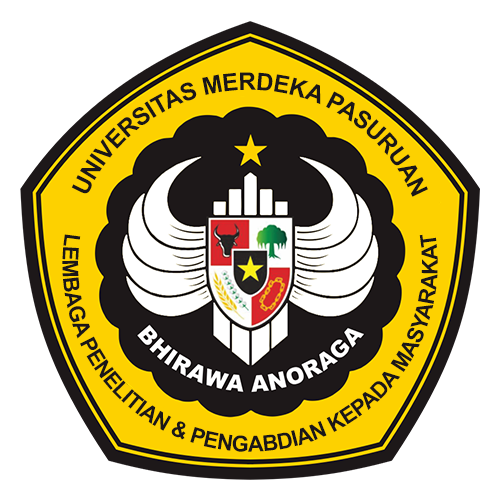- Focus and Scope
- Section Policies
- Peer Review Process
- Publication Frequency
- Open Access Policy
- Archiving
Focus and Scope
Jurnal Masyarakat Merdeka (JMM) is a scientific journal that contains results of the implementation of community service and empowerment programs for all fields.
Section Policies
Articles
Peer Review Process
All manuscripts are checked by qualified peer review and the authors are subject to blind-peer review whose identities will remain anonymous. The peer review process will be done after the initial screening by the consulting editors of the editorial board. The reviewers, who will perform the blind-peer reviews, comprise renowned national and international academicians and practitioners specializing in various mathematics education fields.
- Editor receives manuscript
- Reviewers read and provide comments to the editor
- The decision is made by the reviewer: accept, minor revisions, major revisions, or reject
- Feedback sent to an author
- Revisions
- Final decision
- Article is published
Submitted papers are evaluated by at least two anonymous referees for contribution, originality, relevance, and presentation (blind-peer review). The Editor shall inform you of the results of the review as soon as possible, hopefully in 30 to 60 days. Plagiarism detection of articles in this journal is carried out by using Turnitin and Mendeley as a Tool Reference Manager. The language used in this journal is Bahasa.
Publication Frequency
Jurnal Masyarakat Merdeka (JMM) is published twice a year in Mei and November.
Open Access Policy
Jurnal Masyarakat Merdeka (JMM) provides direct open access to its contents with the principle that research is made available free of charge to the public and supports global exchange of knowledge according to current developments and technological advances. This journal adheres to publishing practices and standards and adheres to the following conditions:
1. Provide direct open access to its content on the principle that making research freely available to the public supports greater global exchange of knowledge.
2. Allows authors to hold copyright and retain publishing rights without restrictions.
3. Store content with long-term digital preservation or archiving programs.
4. Using the DOI as a permanent identifier.
5. Embed machine-readable CC license information in articles.
6. Permits content reuse and mixing, in accordance with the CC BY-SA license.
7. Provides article-level metadata for all indexers.
8. Have a savings policy that is registered with a list of deposit policies.
Archiving
This journal utilizes the LOCKSS system to create a distributed archiving system among participating libraries and permits those libraries to create permanent archives of the journal for purposes of preservation and restoration. More...



